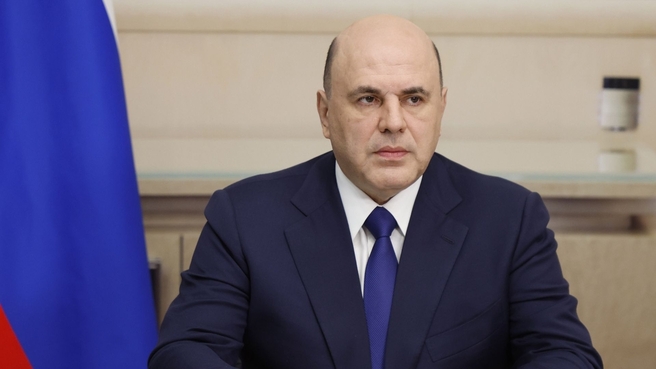Agenda: support for manufacturers of electronics using Russian hardware components, free retraining under the Employment Assistance federal project, and updating the roadmaps for the development of transport and logistics corridors.
Mikhail Mishustin’s opening remarks:
Good afternoon, colleagues.
Before we move on to the main agenda, I want to say a few words about a document we adopted.
At the instruction of the President, the Government continues to work to ensure Russia’s technological sovereignty.
A resolution has been signed that gives an advantage to domestic electronics using Russian processors during procurement for state and municipal needs. Bids from manufacturers of such equipment will have priority. If no such bids have been submitted, domestic electronics using foreign components will be next in line.
As regards foreign equipment, buying it will be considered only if there are no competitors from Russia.
This approach will help support domestic producers and generate additional guaranteed demand for their products, which should have a positive impact on the development of their projects in the medium and long term.
Now on to the agenda. Let us discuss state support for vocational education, professional development and retraining. The President has repeatedly pointed out the importance of promoting such training for achieving Russia’s technological sovereignty.
We will allocate more than 2.5 billion roubles to achieve our objectives. The funds will be used to provide grants to institutions that train personnel currently needed in the labour market.
The Institute for the Development of Vocational Education will become a federal operator that distributes the money, effective this year. Other federal operators are the Academy of National Economy and Public Administration and Tomsk State University.
We hope that these measures will help more than 46,000 Russians undergo training as preschool teachers, technicians, builders and light industry workers, and find jobs or start their own businesses.
I ask the Federal Service for Labour and Employment (Rostrud) to ensure that the money allocated under the Employment Assistance federal project is spent efficiently and strictly for the intended purpose.
The next item on the agenda concerns the implementation of the roadmaps for the development of transport and logistics corridors – the North-South and Azov-Black Sea international corridors and the eastern operating domain. We spoke in detail about these priority projects during the Government report to the State Duma.
The Government approved the corresponding plans in December last year. They are comprehensive and include the expansion of the Baikal-Amur Mainline and the Trans-Siberian Railway, the development of motor roads and waterways, an increase in the throughput capacity of seaports, and importantly, an upgrade of checkpoints across the state border.
The aforementioned improvements will help redirect cargo flows and expand trade and economic ties with friendly countries, primarily in South and Southeast Asia, the Caspian region, the South Caucasus, the Persian Gulf and Africa.
Following our discussion, we will finalise our plans for the development of transport corridors and update the final action plan through June 2023. It is important that full funding is ensured for each of the steps.












